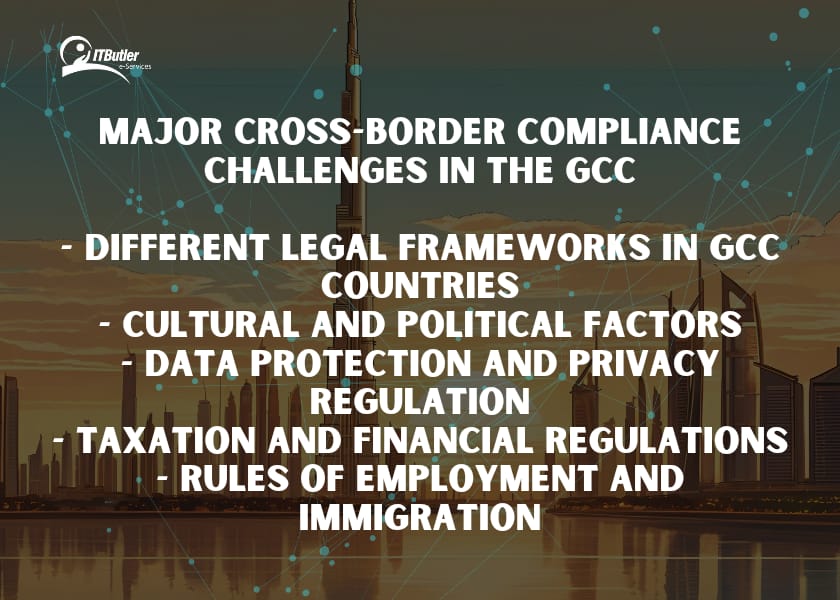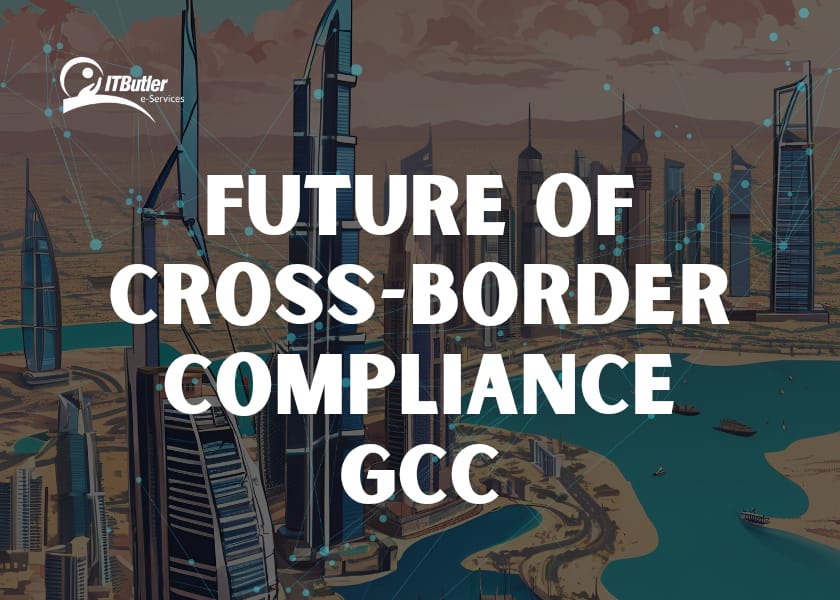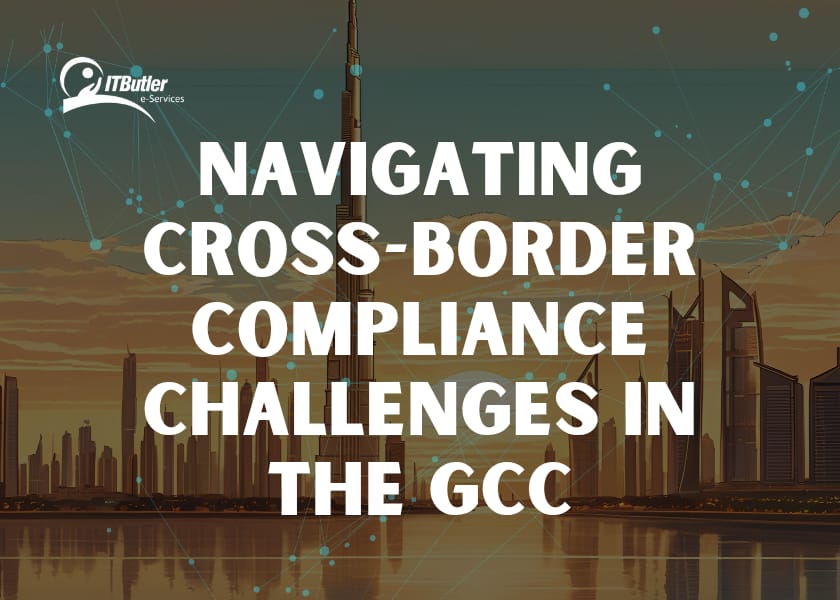Cross-border compliance in the GCC can feel like trying to solve a puzzle where the regulations keep changing. Therefore, when you crack one regulation another seems to emerge in another country. How can you keep up with Saudi Arabia, the UAE, and Qatar rules simultaneously?
However, every country has legislation surrounding data protection, taxes, and labor laws within the GCC. So, how do you ensure your business remains compliant while avoiding all the headaches? Therefore in this blog, we’re going to discuss the biggest compliance challenges and ways to tackle them like a pro.
What is Cross-Border Compliance in the GCC?
It is the process by which a business follows all the legal, regulatory, and operational rules of more than one country. Whenever a company does its business internationally, they have to abide by the specific laws of each country. In other words, they have to prepare themselves for taxes, data privacy, employment, trade, or financial transactions, among others.
For example, a firm sells its products in Saudi Arabia and the UAE. So, it has to comply with the respective tax structures, employee rights, and data security requirements of those countries. As, noncompliance can lead to penalties, legal issues, or total prohibition to operate a business. Therefore, cross-border compliance ensures smooth business operations, reduced risks, and fewer legal cases.
Why Is Cross-Border Compliance Important?
Businesses have been stretched out more and more across borders due to the increased globalized economy. As reported by the International Chamber of Commerce, there is a growth of over $25 trillion in global trade.
It is necessary to comply with the laws so that you can conduct a particular business in GCC without hassle. So, here is why cross-border compliance is vital:
- Avoid Legal Fines
- Increasing Trus
- Risk Minimization Related to Finance
- Smooth Operations.
- Data and Privacy Protection

Major Cross-Border Compliance Challenges in the GCC
Different Legal Frameworks in GCC Countries
If all the GCC countries had one set of laws then life would be so simple. But it isn’t that way. Each country in GCC has a different legal framework and does not seem to coincide at all.
For example, the UAE and Saudi Arabia are big players in the region. So, there’s a time when one’s regulatory laws seem like different planets. If something is legal in the UAE, it might take three extra layers of paperwork to get it in Saudi Arabia. Therefore, navigating these different frameworks can sometimes feel like an endless game of legal laws.
Cultural and Political Factors
You are no longer dealing with legally based requirements but also, culturally driven expectations. Therefore, it gets tricky here.
For example, you have to adjust your business according to the local customs. One country expects you to bring gifts to business meetings, while in another it may not be suitable. Further, political conditions like embargoes can cause sudden changes in the rules of a game leaving you shocked.
Data Protection And Privacy Regulation
In this digital era, data protection in GCC is necessary and businesses are serious about it. Each country has rules for data storage, handling, and even sharing across borders.
For example, Saudi and Qatar have their own Personal Data Protection Laws. So, If your business conducts cross-border data transfers, then you would need to understand all the regulations that surround it. Otherwise, you will be in a position where you will face legal issues.
Taxation and Financial Regulations
Tackling taxes in the GCC is like trying to keep up with who brought what to the family picnic. However, some countries have either VAT or none, and there are different rules for filing taxes in each country.
Moreover, there’s an issue of complicated double-taxation agreements in some countries. What does that do? It puts you into a position where the government takes taxes off you twice. So, you have to be careful while managing your business there.
Rules of Employment and Immigration
Something that initially sounds like a fabulous idea is hiring talent across GCC borders. But once you start looking for it, you will come across local employment laws.
However, the laws vary widely when talking about visas and work permits between countries. As, one day you operate under labor laws of the UAE, and then Saudi Arabia’s the other day. But it may involve a different process for getting your team on the ground.
Role of Technology in Automating Compliance
Compliance Management Systems
Technology can save the day or make compliance a lot less hectic process. As, with the help of the right tools you can track your regulatory changes across the GCC in real-time.
GRC technology can help you to automate most of your work so that you never again miss an important change to the law. In other words, it’s like having a full-time legal assistant.
Data Analytics for Risk Management
Everyone with a business mindset at some point wanted to know what tomorrow holds, right? So, here is the magic tool called data analytics.
Data analytics can help you to identify trends and even predict compliance risks before they become huge problems. Moreover, with the appropriate tools in hand, you can check the cross-border compliance situation as well.
Cloud-based Solutions for Cross-Border Compliance
When you operate your business across several countries then it’s important to keep everyone on the same page. Therefore, cloud-based solutions empower your team with easy collaboration regardless of location. However, you can also ensure that your data is safe and compliant with local regulations.
Blockchain for Transparency
Blockchain technology is a very powerful tool for transparency in cross-border transactions. With the help of this technology, every transaction is recorded in an immutable ledger. Thus, making it easier for us to show compliance and avoid disputes.
Best Practices for Managing Cross-Border Compliance in the GCC
1. Keep Track of Legal Changes
The laws and regulations in the GCC can change very rapidly so, it’s important to keep yourself updated. Monitor these technological advancements and ensure you never get out of compliance.
2. Develop Local Partnerships
Work through local partners to stay on top of compliance with each country. As they know what works and what doesn’t under the laws you work with and can assist you thoroughly.
3. Standardize Internal Policies
The process to become compliant is to develop flexible, adaptable internal policies that could be adjusted internationally. So you do not have to worry about every country’s laws as only a few minor adjustments would make it.
4. Conduct Regular Compliance Audits
Do not wait for a problem to arise only to discover you are non-compliant. However, internal and external audits can help you identify areas that may cause a problem and get them corrected.
5. Invest in Employee Training
Your employees are your first line of defense on cross-border compliance issues. So make sure they are well trained by the rules and regulations of the countries in which you operate.

Future of Cross-Border Compliance GCC
Evolving Regulations
As the GCC continues to evolve as a global business hub, things tend to become hard to monitor and refine. However, companies will need to stay agile to keep up with such changes.
Growing International Cooperation
More cooperation between the GCC could bring harmonization in the regulations so compliance will be easier across borders.
Anticipated Challenges
New compliance issues will arise with the developing technology and changing global trade. Hence, data security will remain a hot topic and financial regulations might be even tougher.
Conclusion
Cross-border compliance in the GCC has never been easy but it does not have to be a nightmare either. If you stay ahead of challenges, use technology, and team up with local players, you can navigate the hurdles. Thus, keep your compliance game strong and you are going to be just fine in every region.
Have you ever faced any sort of cross-border compliance issue? If yes, then what is your strategy to cope? Share your story with us, we would love to get tips on keeping up with such challenges.
FAQs for Cross-Border Compliance Challenges
– What are the challenges of cross-border?
Here are the main challenges that businesses come across:
- Different Legal Frameworks
- High Transaction Costs
- Data privacy and protection
- Currency Exchange Risks
- Limited Transparency
What is a cross-border transaction?
It refers to any transaction involving two parties who are located in different countries. All of these transfers may be between individuals, companies, and banking institutions.
What is B2B cross-border payment?
These are business-to-business cross-boundary transactions. These are transactions involving different businesses which usually operate with other businesses across different economic zones.
